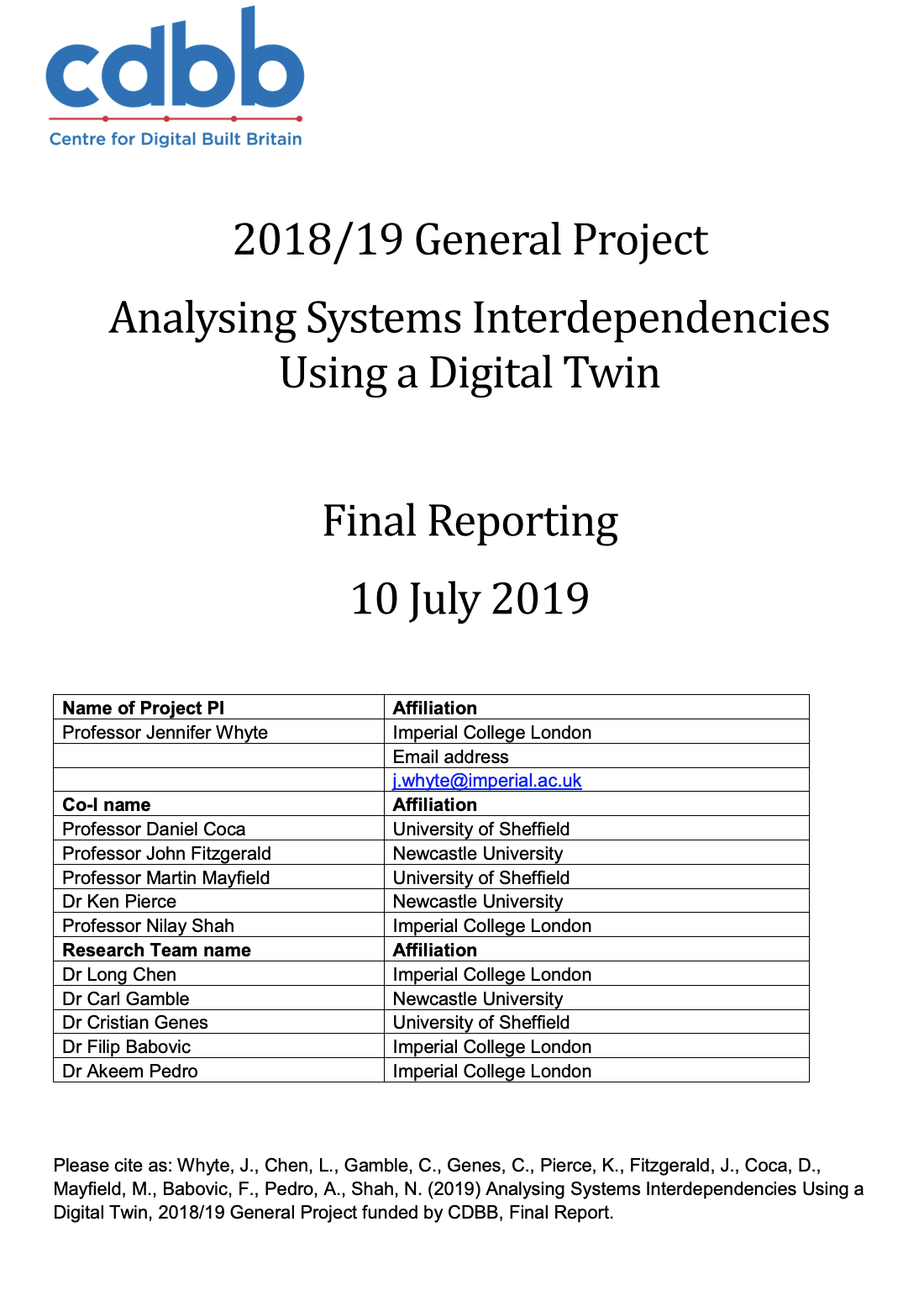
Submitted by Angela Walters on Wed, 10/07/2019 - 10:28
Project background
This project investigates how to understand infrastructure complexity, using the digital twin. This work provides a first step toward next-generation systems engineering by demonstrating the feasibility of using a digital twin to generate new insight on systems relationships and interdependencies. This step requires substantial interdisciplinary work and industry collaboration to examine the potential to combine a set of relevant analytic methods (network analyses, co-simulation, sensitivity analyses, visualisation). We have hence assembled an experienced team (Imperial College London, University of Sheffield, Newcastle University, with the Alan Turing Institute), and will work closely with and use empirical data from a major project (Thames Tideway). The basic proposition underpinning the work is to get maximum value from model-based systems engineering in design as well as run-time data.
Outcomes
This first step delivers fundamental theoretical understanding that will support the use of the digital twin for systems analyses, and a practical contribution to the identification, prioritisation and management of interdependencies.
Method
- Industry collaboration
- field research
- evaluation of systems analysis techniques
- synthesis and validation of findings.
People
Project
Analysing Systems Interdependencies using a Digital Twin

